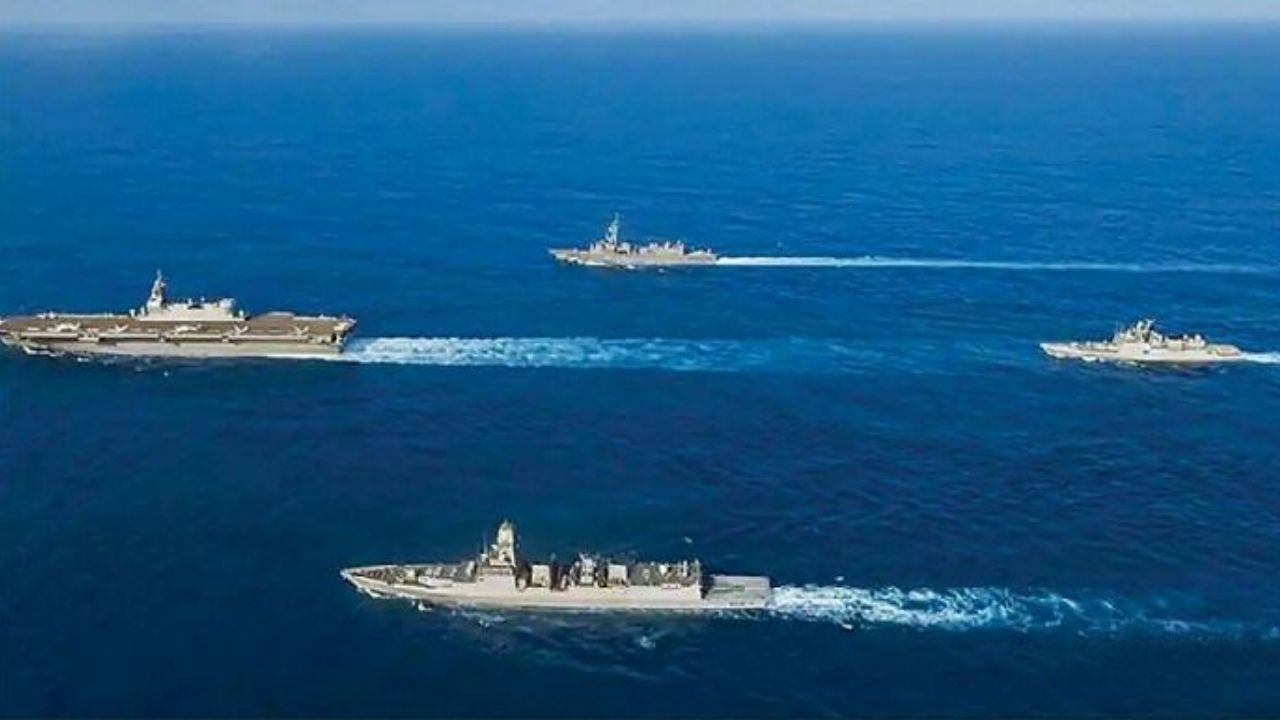Sajjad Naderi, in an interview with the website of the Strategic Council on Foreign Relations, stated: “The developments following the Gaza war have created one of the most sensitive historical junctures for the Persian Gulf region. Meanwhile, Iran and Saudi Arabia relations have embarked on a new path, the nature of which is completely different from the past.”
He emphasized: “The Gaza crisis led the two countries to gain a more precise understanding of the concept of common threat. Tehran and Riyadh realized that the continuation of confrontation would pave the way for further influence by extra-regional powers, particularly the United States and the Zionist regime. Therefore, the path of dialogue and interaction is being pursued not out of short-term expediency, but with a strategic view towards regional stability. The military aggression of the Zionist regime against Iran and then against Qatar transformed the perspective of Saudi Arabia and other countries on the shores of the Persian Gulf and pushed them towards a kind of convergence with Tehran.”
The expert added: “China’s role in mediating the restoration of Iran-Saudi relations in Esfand 1401 (February/March 2023) was a turning point in the balance of power in the Persian Gulf. Unlike Western models, Beijing emphasized common economic interests, energy stability, and mutual respect for sovereignty, and used the language of soft power to mend rifts. This approach was acceptable to both countries and led to the pursuit of security dialogue within the framework of joint committees. As a result, Saudi Arabia has called for a diplomatic path regarding Iran’s nuclear dossier and warns against any military action against Tehran by the US or the Israeli regime.” Naderi noted: “The Gaza crisis over the past two years has been a practical test for both countries. At a time when some regional actors were trying to drag tensions into the Persian Gulf, Tehran and Riyadh demonstrated that they have adopted a new approach to crisis management. Even in the media stances of both sides, caution and a desire to maintain calm are observed.”
Iran’s Strategy in Reducing the US Military Presence
The regional security researcher emphasized: “One important dimension of recent developments is the redefinition of the US military presence in the Persian Gulf. From Iran’s perspective, the region’s security architecture should be based on cooperation among coastal states, not on foreign powers. Tehran has pursued this policy by strengthening security and diplomatic cooperation with neighbors. At the same time, Saudi Arabia, after experiencing the recent aggression of the Israeli regime against Qatar, has reached a new understanding of the instability of US security guarantees.” He added: “By adopting a dialogue-oriented policy in interactions with the countries of the Persian Gulf region, Iran has tried to show that the security of this body of water is only possible through collective participation. Tehran’s message is clear; security is not something that can be bought or imported; rather, it must be built through mutual confidence-building.”
Naderi emphasized: “After the Gaza crisis, the US presence in the Persian Gulf has been challenged more than ever. Washington intended to demonstrate power by deploying its warships to the region, but this action caused concern among its allies because it increased the risk of the conflict spreading to the Persian Gulf. The 12-day war against Iran showed that, in the event of a conflict, the entire region would be drawn in. Therefore, Iran sees these conditions as an opportunity to highlight the necessity of the withdrawal of foreign forces and the strengthening of indigenous regional security mechanisms.” He added: “Alongside political measures, Tehran has also pursued a deterrent and balanced strategy in the defense arena. The goal of this strategy is to prevent unwanted conflict and create a balance among regional powers. Through a combination of smart power, active diplomacy, and the development of defense infrastructure, Iran seeks to establish a stable balance in the Persian Gulf.”
Naderi said: “The increase in multilateral dialogues, including between Tehran-Muscat, Tehran-Doha, and joint meetings with Baghdad and Kuwait, along with the recent trip of the deputy foreign minister to Saudi Arabia, are signs of the gradual formation of a new security architecture in the region; an architecture built not on the presence of foreign military forces, but on trust, dialogue, and common development.”
Collective Security of the Persian Gulf from the Iranian Point of View
The expert emphasized: “The concept of collective security from Iran’s perspective is indigenous and multifaceted. Unlike Western models that seek security solely within the framework of military pacts, in Tehran’s view, real security is the result of cooperation in various fields, especially economic, cultural, and environmental, among nations.” He explained: “In the post-Gaza war era, the necessity of redefining this concept is felt more than ever. The Persian Gulf is not only an arena for power competition but also a vital passageway for global energy and trade. Any instability in it has chain effects on the international economy; therefore, Iran believes that the security of the Persian Gulf must be shaped through the earnest participation of coastal states and without foreign interference.”
Naderi concluded: “Within this framework, Iran has proposed initiatives such as the ‘Coalition of Hope,’ which focuses on maritime, rescue, and environmental cooperation. The experience of the Gaza crisis showed that the era of security dependence on foreign powers is over. The Persian Gulf can move towards peace and stability through indigenous initiatives, and Iran, relying on its historical and diplomatic capacities, is prepared to play an active role in this new regional order.”










0 Comments